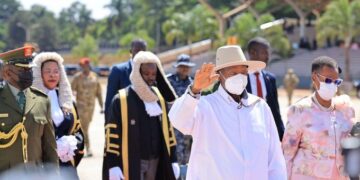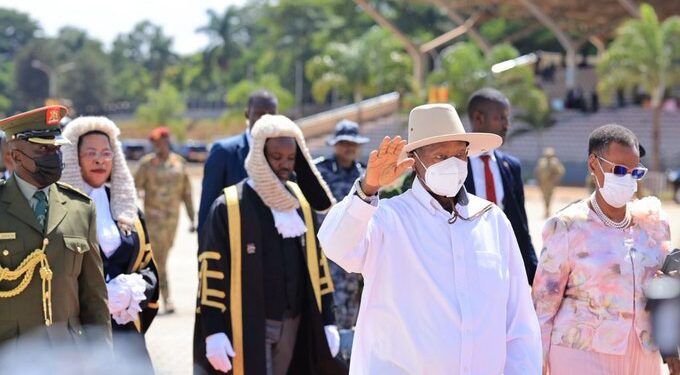President Yoweri Kaguta Museveni has officially unveiled Uganda’s national budget for the financial year 2025/2026, asserting that the economy has taken off. He called on leaders to align financial allocations with performance and accountability.
The Shs 72.376 trillion budget was delivered under the theme: “Full Monetisation of the Ugandan Economy Through Commercial Agriculture, Industrialisation, Expanding and Broadening Services, Digital Transformation and Market Access.”
In accordance with Article 155(1) of the Constitution, and on behalf of His Excellency the President, Hon. Matia Kasaija, Minister of Finance, Planning and Economic Development, presented the budget approved by Parliament to the nation. The presentation took place at the Kololo Ceremonial Grounds.
Commenting on the economic status outlined by the Finance Minister, President Museveni stated: “Here the size of Uganda’s economy is now $61 billion by the exchange rate method and $174 billion by the purchasing power parity method. Given our population, which is about 45 million Ugandans, we are no longer a least developed country. We are now a lower-middle-income country.”
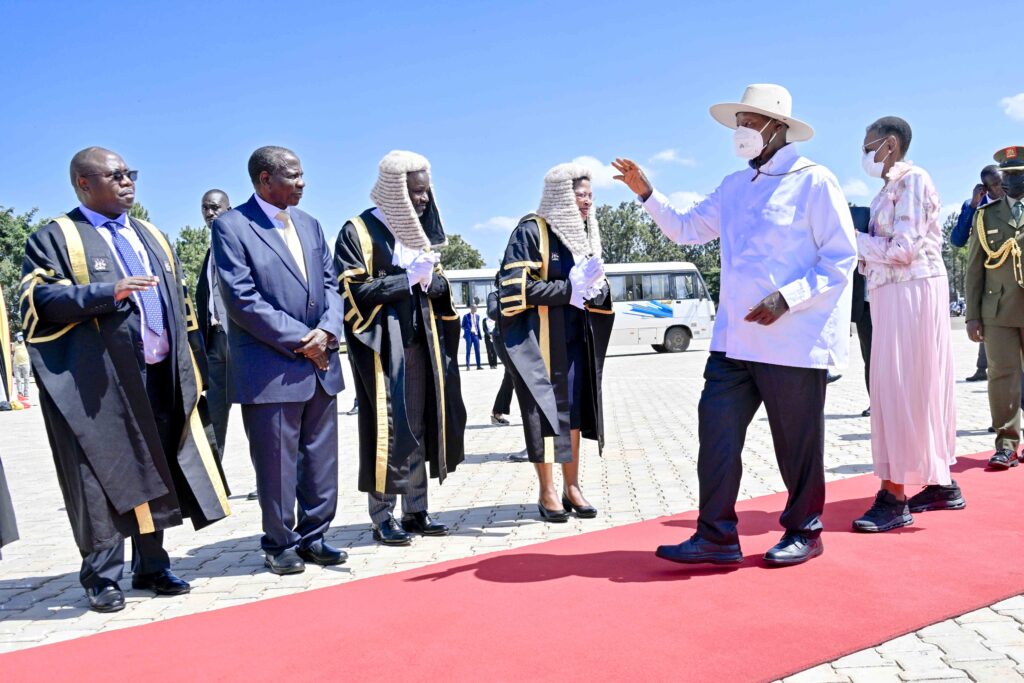
He emphasised key economic indicators to assess the country’s progress: “GDP growth, and price stability: Are the prices stable or not? Currency stability: Is the currency stable or not? Are jobs being created or not? Are export earnings going up or not? And finally, are foreign direct investments coming in or not? I thought we should note that.”
Reflecting on Uganda’s economic journey since 1986, Museveni remarked: “You can see the economy has grown more than 20 times, I thought you should mark that, because in a long speech like this, you may not notice the big picture.” At that time, Uganda’s GDP stood at just $3.9 billion.
The 2025/26 budget is anchored in the Fourth National Development Plan (NDPIV) covering 2025/26–2029/30, with investments directed toward priority areas such as agro-industrialisation, tourism, mineral development (including oil and gas), ICT, and infrastructure enablers essential for business growth.
Beyond figures and frameworks, President Museveni used his address to highlight persistent inefficiencies and mismanagement in budget implementation, warning that these could derail Uganda’s transformation.

“I heard the veterans of Luweero in Lyantonde on Heroes Day raising issues. When I checked, we had already provided Shs 218 billion or something like that for the kasimo, and it was flipped to be Shs5 million for elders each and Shs1 million for the supporters. So, what happened to this money?” he asked.
He also demanded a follow-up on long-delayed cattle compensation funds: “For Teso, Lango, Acholi, we have always spent Shs 200 billion on that, and we have already budgeted Shs 80 billion. So, leaders, follow up on that money.”
On public investment in sports, Museveni stated: “Then you get things like stadiums. The National Council of Sports needs to explain to us. I hear some money has gone to Kakyeka and a number of them to do some work, others are going to be done massively, and so on. So, the Council of Sports should also explain and brief Maama about this money.”
Addressing security concerns, the President clarified misconceptions around digital number plates: “I saw some issues about the digital number plates, that people are being fined. I don’t know what, but the issue about the number plates is not about fines. It’s anti-crime.”
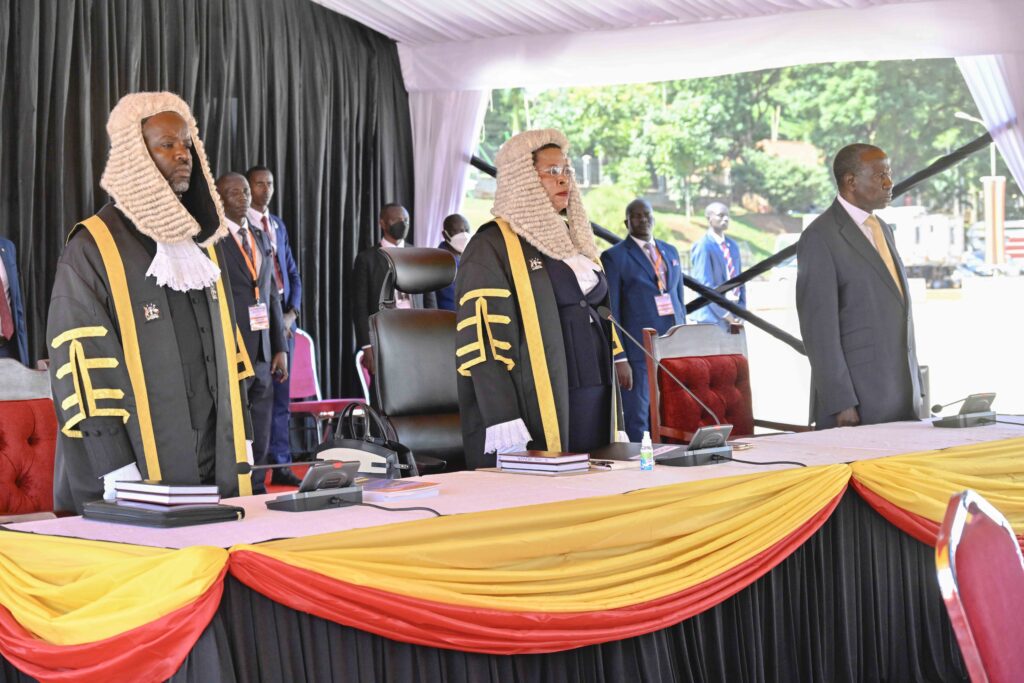
He referred to the recent murder of Wayengera Godfrey in Mukono: “I can’t accept our Ugandans dying because of incomplete infrastructure. Remember when I addressed you in Parliament in 2019, I told you about the cameras you were there with your policemen asking, ‘Ani eyamulabye?’”
He continued: “Let’s go technical. Let’s have smart means. They have helped us solve a number of things. These are digitised number plates with a central command not collecting fines and so on.”
Explaining the confusion, Museveni added: “I think the confusion about fines could be because we didn’t have money and we told these people to put number plates and recover money. The issue is about the number plate being diagnosed… The issue is not about money. No. It’s about security. They are acting with impunity. This is not about fines. It’s about security.”
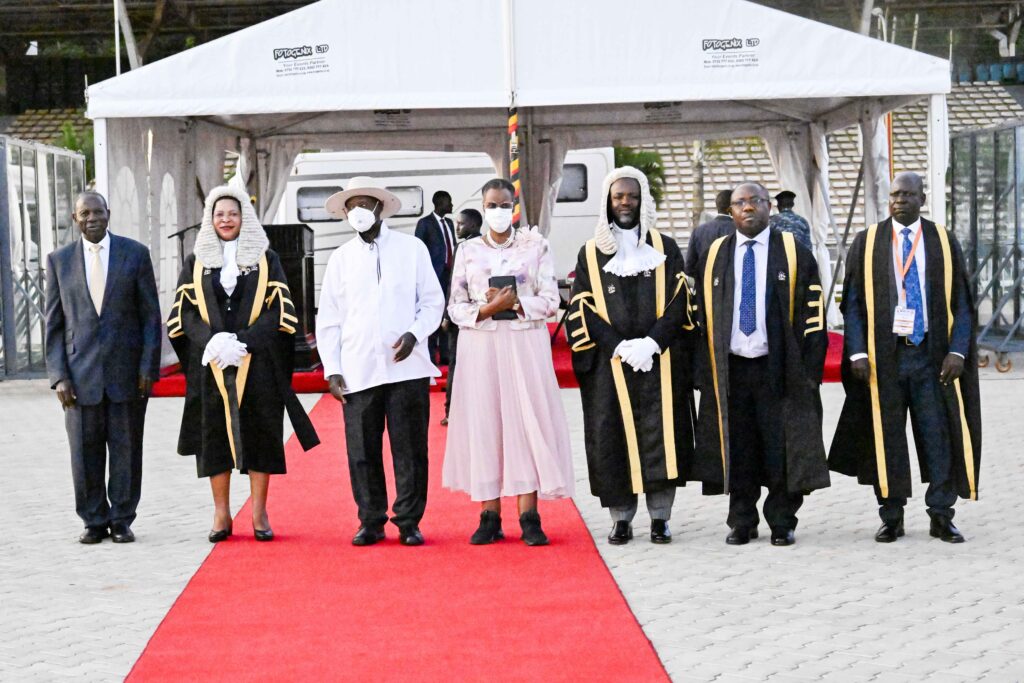
President Museveni reaffirmed the role of government-led programs like NAADs, Operation Wealth Creation (OWC), the Parish Development Model (PDM), and Emyooga in improving livelihoods: “The Government, through the budgets, is the one that can help the people to solve their problems. Programs like NAADs, OWC, PDM, Emyooga, etc., have already shown that they can liberate people from poverty.”
He cited examples of government-driven transformation: “The current Coffee boom was on account of the Government scientists who developed the improved Clonal Coffee… The Dairy industry in the cattle corridor, the Kalangala Palm oil projects, are projects pushed by the government that have transformed people’s lives.”
